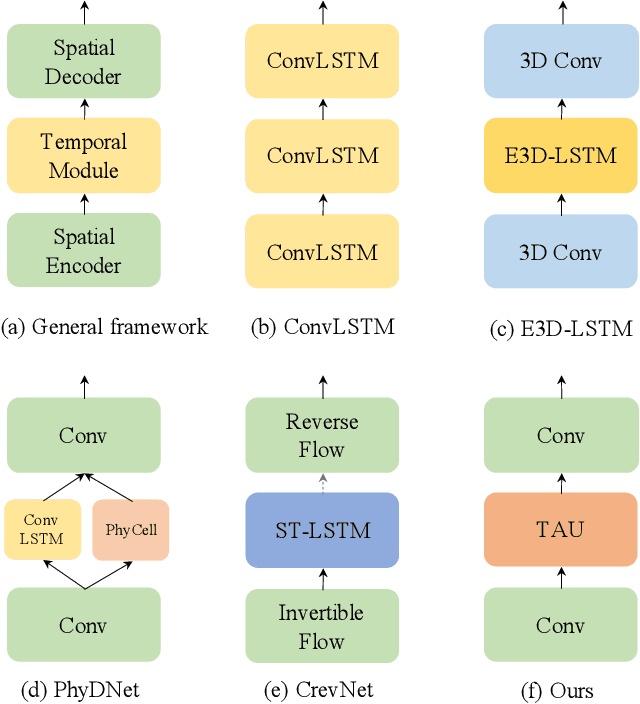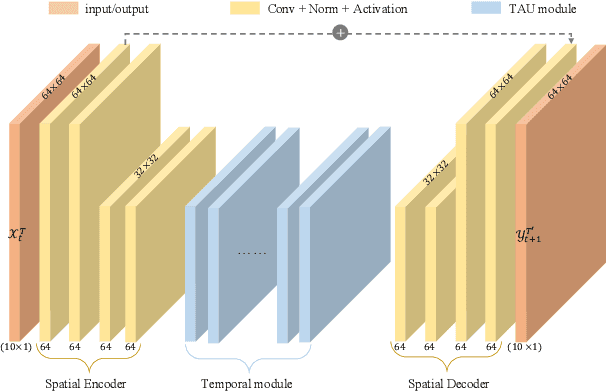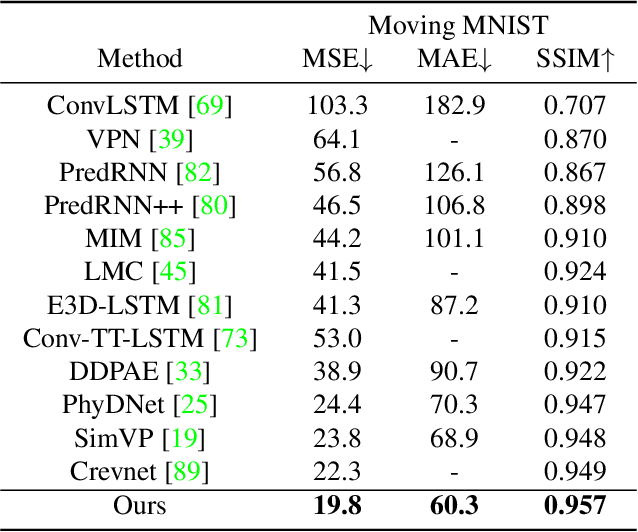Temporal Attention Unit: Towards Efficient Spatiotemporal Predictive Learning
Paper and Code
Jun 24, 2022



Spatiotemporal predictive learning aims to generate future frames by learning from historical frames. In this paper, we investigate existing methods and present a general framework of spatiotemporal predictive learning, in which the spatial encoder and decoder capture intra-frame features and the middle temporal module catches inter-frame correlations. While the mainstream methods employ recurrent units to capture long-term temporal dependencies, they suffer from low computational efficiency due to their unparallelizable architectures. To parallelize the temporal module, we propose the Temporal Attention Unit (TAU), which decomposes the temporal attention into intra-frame statical attention and inter-frame dynamical attention. Moreover, while the mean squared error loss focuses on intra-frame errors, we introduce a novel differential divergence regularization to take inter-frame variations into account. Extensive experiments demonstrate that the proposed method enables the derived model to achieve competitive performance on various spatiotemporal prediction benchmarks.
 Add to Chrome
Add to Chrome Add to Firefox
Add to Firefox Add to Edge
Add to Edge